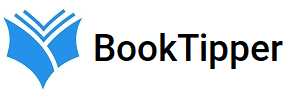Featured New Releases

HUMANKIND: A HOPEFUL HISTORY
by Rutger Bregman
If there is one belief that has united the left and the right, psychologists and philosophers, ancient thinkers and modern ones, it is the tacit assumption that humans are bad. It’s a notion that drives newspaper headlines and guides the laws that shape our lives. From Machiavelli to Hobbes, Freud to Pinker, the roots of this belief have sunk deep into Western thought. Human beings, we’re taught, are by nature selfish and governed primarily by self-interest.
But what if it isn’t true? International bestseller Rutger Bregman provides new perspective on the past 200,000 years of human history, setting out to prove that we are hardwired for kindness, geared toward cooperation rather than competition, and more inclined to trust rather than distrust one another. In fact this instinct has a firm evolutionary basis going back to the beginning of Homo sapiens.
From the real-life Lord of the Flies to the solidarity in the aftermath of the Blitz, the hidden flaws in the Stanford prison experiment to the true story of twin brothers on opposite sides who helped Mandela end apartheid, Bregman shows us that believing in human generosity and collaboration isn’t merely optimistic—it’s realistic. Moreover, it has huge implications for how society functions. When we think the worst of people, it brings out the worst in our politics and economics. But if we believe in the reality of humanity’s kindness and altruism, it will form the foundation for achieving true change in society, a case that Bregman makes convincingly with his signature wit, refreshing frankness, and memorable storytelling.
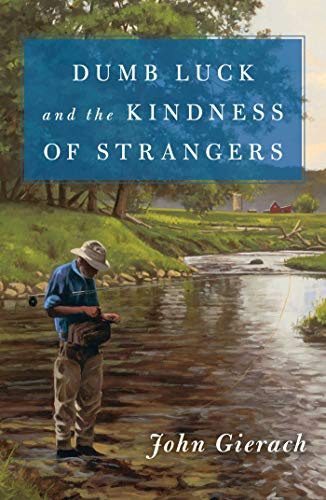
DUMB LUCK & THE KINDNESS OF STRANGERS
by John Gierach
Witty, shrewd, and, as always, a joy to read, John Gierach, “America’s best fishing writer” (Houston Chronicle) and favorite streamside philosopher, extols the frequent joys and occasional tribulations of the fly-fishing life.
“After five decades, twenty books, and countless columns, [John Gierach] is still a master” (Forbes). Now, in his latest fresh and original collection, Gierach shows us why fly-fishing is the perfect antidote to everything that is wrong with the world.
“Gierach’s deceptively laconic prose masks an accomplished storyteller…His alert and slightly off-kilter observations place him in the general neighborhood of Mark Twain and James Thurber” (Publishers Weekly). In Dumb Luck and the Kindness of Strangers, Gierach looks back to the long-ago day when he bought his first resident fishing license in Colorado, where the fishing season never ends, and just knew he was in the right place. And he succinctly sums up part of the appeal of his sport when he writes that it is “an acquired taste that reintroduces the chaos of uncertainty back into our well-regulated lives.”
Lifelong fisherman though he is, Gierach can write with self-deprecating humor about his own fishing misadventures, confessing that despite all his experience, he is still capable of blowing a strike by a fish “in the usual amateur way.” The “voice of the common angler” (The Wall Street Journal), he offers witty, trenchant observations not just about fly-fishing itself but also about how one’s love of fly-fishing shapes the world that we choose to make for ourselves.

CROSS OF SNOW
by Nicholas A. Basbanes
In Cross of Snow, the result of more than twelve years of research, including access to never-before-examined letters, diaries, journals, notes, Nicholas Basbanes reveals the life, the times, the work–the soul–of the man who shaped the literature of a new nation with his countless poems, sonnets, stories, essays, translations, and whose renown was so wide-reaching that his deep friendships included Charles Dickens, Nathaniel Hawthorne, Ralph Waldo Emerson, Julia Ward Howe, and Oscar Wilde.
Basbanes writes of the shaping of Longfellow’s character, his huge body of work that included translations of numerous foreign works, among them, the first rendering into a complete edition by an American of Dante’s Divine Comedy. We see Longfellow’s two marriages, both happy and contented, each cut short by tragedy. His first to Mary Storer Potter that ended in the aftermath of a miscarriage, leaving Longfellow devastated. His second marriage to the brilliant Boston socialite–Fanny Appleton, after a three-year pursuit by Longfellow (his “fiery crucible,” he called it), and his emergence as a literary force and a man of letters.
A portrait of a bold artist, experimenter of poetic form and an innovative translator–the human being that he was, the times in which he lived, the people whose lives he touched, his monumental work and its place in his America and ours.
Still Hot in Non-Fiction & History
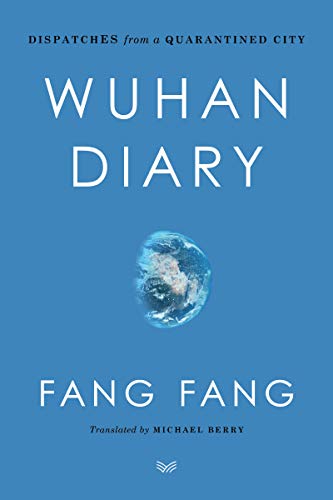
WUHAN DIARY
by Fang Fang
From one of China’s most acclaimed and decorated writers comes a powerful first-person account of life in Wuhan during the COVID-19 outbreak.
On January 25, 2020, after the central government imposed a lockdown in Wuhan, acclaimed Chinese writer Fang Fang began publishing an online diary. In the days and weeks that followed, Fang Fang’s nightly postings gave voice to the fears, frustrations, anger, and hope of millions of her fellow citizens, reflecting on the psychological impact of forced isolation, the role of the internet as both community lifeline and source of misinformation, and most tragically, the lives of neighbors and friends taken by the deadly virus.
A fascinating eyewitness account of events as they unfold, Wuhan Diary captures the challenges of daily life and the changing moods and emotions of being quarantined without reliable information. Fang Fang finds solace in small domestic comforts and is inspired by the courage of friends, health professionals and volunteers, as well as the resilience and perseverance of Wuhan’s nine million residents. But, by claiming the writer´s duty to record she also speaks out against social injustice, abuse of power, and other problems which impeded the response to the epidemic and gets herself embroiled in online controversies because of it.
As Fang Fang documents the beginning of the global health crisis in real time, we are able to identify patterns and mistakes that many of the countries dealing with the novel coronavirus have later repeated. She reminds us that, in the face of the new virus, the plight of the citizens of Wuhan is also that of citizens everywhere. As Fang Fang writes: “The virus is the common enemy of humankind; that is a lesson for all humanity. The only way we can conquer this virus and free ourselves from its grip is for all members of humankind to work together.”
Blending the intimate and the epic, the profound and the quotidian, Wuhan Diary is a remarkable record of an extraordinary time.

FIRE IN PARADISE: AN AMERICAN TRAGEDY
by Alastair Gee & Dani Anguiano
The harrowing story of the most destructive American wildfire in a century.
There is no precedent in postwar American history for the destruction of the town of Paradise, California. On November 8, 2018, the community of 27,000 people was swallowed by the ferocious Camp Fire, which razed virtually every home and killed at least 85 people. The catastrophe seared the American imagination, taking the front page of every major national newspaper and top billing on the news networks. It displaced tens of thousands of people, yielding a refugee crisis that continues to unfold.
Fire in Paradise is a dramatic and moving narrative of the disaster based on hundreds of in-depth interviews with residents, firefighters and police, and scientific experts. Alastair Gee and Dani Anguiano are California-based journalists who have reported on Paradise since the day the fire began. Together they reveal the heroics of the first responders, the miraculous escapes of those who got out of Paradise, and the horrors experienced by those who were trapped. Their accounts are intimate and unforgettable, including the local who left her home on foot as fire approached while her 82-year-old father stayed to battle it; the firefighter who drove into the heart of the inferno in his bulldozer; the police officer who switched on his body camera to record what he thought would be his final moments as the flames closed in; and the mother who, less than 12 hours after giving birth in the local hospital, thought she would die in the chaotic evacuation with her baby in her lap. Gee and Anguiano also explain the science of wildfires, write powerfully about the role of the power company PG&E in the blaze, and describe the poignant efforts to raise Paradise from the ruins.
This is the story of a town at the forefront of a devastating global shift—of a remarkable landscape sucked ever drier of moisture and becoming inhospitable even to trees, now dying in their tens of millions and turning to kindling. It is also the story of a lost community, one that epitomized a provincial, affordable kind of Californian existence that is increasingly unattainable. It is, finally, a story of a new kind of fire behavior that firefighters have never witnessed before and barely know how to handle. What happened in Paradise was unprecedented in America. Yet according to climate scientists and fire experts, it will surely happen again.

HOLLYWOOD PARK
by Mikel Jollett
HOLLYWOOD PARK is a remarkable memoir of a tumultuous life. Mikel Jollett was born into one of the country’s most infamous cults, and subjected to a childhood filled with poverty, addiction, and emotional abuse. Yet, ultimately, his is a story of fierce love and family loyalty told in a raw, poetic voice that signals the emergence of a uniquely gifted writer.
We were never young. We were just too afraid of ourselves. No one told us who we were or what we were or where all our parents went. They would arrive like ghosts, visiting us for a morning, an afternoon. They would sit with us or walk around the grounds, to laugh or cry or toss us in the air while we screamed. Then they’d disappear again, for weeks, for months, for years, leaving us alone with our memories and dreams, our questions and confusion. …
So begins Hollywood Park, Mikel Jollett’s remarkable memoir. His story opens in an experimental commune in California, which later morphed into the Church of Synanon, one of the country’s most infamous and dangerous cults. Per the leader’s mandate, all children, including Jollett and his older brother, were separated from their parents when they were six months old, and handed over to the cult’s “School.” After spending years in what was essentially an orphanage, Mikel escaped the cult one morning with his mother and older brother. But in many ways, life outside Synanon was even harder and more erratic.
In his raw, poetic and powerful voice, Jollett portrays a childhood filled with abject poverty, trauma, emotional abuse, delinquency and the lure of drugs and alcohol. Raised by a clinically depressed mother, tormented by his angry older brother, subjected to the unpredictability of troubled step-fathers and longing for contact with his father, a former heroin addict and ex-con, Jollett slowly, often painfully, builds a life that leads him to Stanford University and, eventually, to finding his voice as a writer and musician.
Hollywood Park is told at first through the limited perspective of a child, and then broadens as Jollett begins to understand the world around him. Although Mikel Jollett’s story is filled with heartbreak, it is ultimately an unforgettable portrayal of love at its fiercest and most loyal.
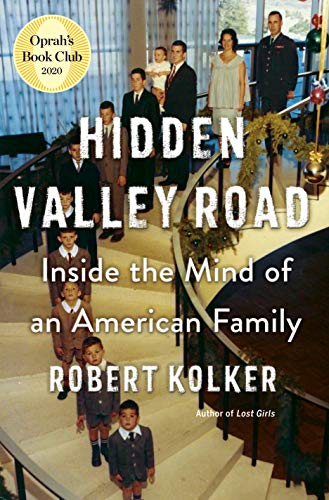
HIDDEN VALLEY ROAD
by Robert Kolker
The heartrending story of a midcentury American family with twelve children, six of them diagnosed with schizophrenia, that became science’s great hope in the quest to understand the disease.
Don and Mimi Galvin seemed to be living the American dream. After World War II, Don’s work with the Air Force brought them to Colorado, where their twelve children perfectly spanned the baby boom: the oldest born in 1945, the youngest in 1965. In those years, there was an established script for a family like the Galvins–aspiration, hard work, upward mobility, domestic harmony–and they worked hard to play their parts. But behind the scenes was a different story: psychological breakdown, sudden shocking violence, hidden abuse. By the mid-1970s, six of the ten Galvin boys, one after another, were diagnosed as schizophrenic. How could all this happen to one family?
What took place inside the house on Hidden Valley Road was so extraordinary that the Galvins became one of the first families to be studied by the National Institute of Mental Health. Their story offers a shadow history of the science of schizophrenia, from the era of institutionalization, lobotomy, and the schizophrenogenic mother to the search for genetic markers for the disease, always amid profound disagreements about the nature of the illness itself. And unbeknownst to the Galvins, samples of their DNA informed decades of genetic research that continues today, offering paths to treatment, prediction, and even eradication of the disease for future generations.
With clarity and compassion, bestselling and award-winning author Robert Kolker uncovers one family’s unforgettable legacy of suffering, love, and hope.
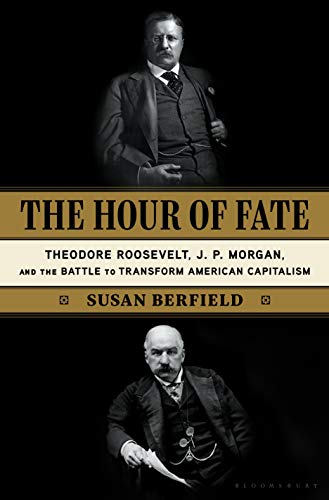
THE HOUR OF FATE
by Susan Berfield
A riveting narrative of Wall Street buccaneering, political intrigue, and two of American history’s most colossal characters, struggling for mastery in an era of social upheaval and rampant inequality.
It seemed like no force in the world could slow J. P. Morgan’s drive to power. In the summer of 1901, the financier was assembling his next mega-deal: Northern Securities, an enterprise that would affirm his dominance in America’s most important industry-the railroads.
Then, a bullet from an anarchist’s gun put an end to the business-friendly presidency of William McKinley. A new chief executive bounded into office: Theodore Roosevelt. He was convinced that as big business got bigger, the government had to check the influence of the wealthiest or the country would inch ever closer to collapse. By March 1902, battle lines were drawn: the government sued Northern Securities for antitrust violations. But as the case ramped up, the coal miners’ union went on strike and the anthracite pits that fueled Morgan’s trains and heated the homes of Roosevelt’s citizens went silent. With millions of dollars on the line, winter bearing down, and revolution in the air, it was a crisis that neither man alone could solve.
Richly detailed and propulsively told, The Hour of Fate is the gripping story of a banker and a president thrown together in the crucible of national emergency even as they fought in court. The outcome of the strike and the case would change the course of our history. Today, as the country again asks whether saving democracy means taming capital, the lessons of Roosevelt and Morgan’s time are more urgent than ever.
